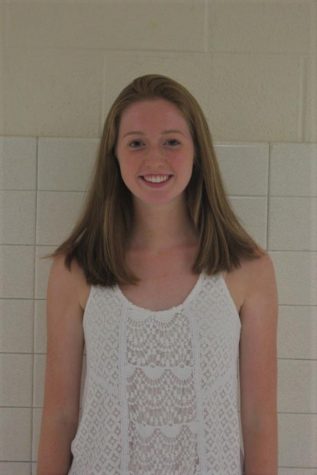Competition: Performing ● Innovating ● Racing
Performing
Pacing the waiting room of a Baltimore community college, Jillian Tate sang a scale to warm up her voice. The 17-year-old Oakton junior was awaiting her turn to impress the judges at the DC Maryland NATS singing competition, along with 40 others.
High school and college students walked in and out of the waiting room. Some stared at their feet while they wrung their hands. Some tapped their foot anxiously while eyeing their competitors. Others conversed with the people around them.
On the left of Tate, a college-aged man talked loudly to a group of fellow singers. “Oh, last year I went to this Juilliard training camp…” he started. More students sitting in the waiting room similarly listed off their impressive singing accomplishments to their peers as if to build their own confidence.
Tate saw some singers beginning to grow anxious at the competition. But Tate knew better than to let the same happen to her. She reminded herself that all this talk was only mind games, and she couldn’t let any of it get to her.
This tension Tate experienced is common throughout the performing industry. Showbusiness is notorious for competition — having the reputation as the career that is most difficult to “make it”. Both outside and within the walls of Oakton High School, competition is fierce and performers feel this extreme pressure to succeed.
The Oakton performing departments work hard to present a variety of award-winning productions to the school population. In this year alone, the drama department put together a fall play, improvisation shows, the Cougar Dinner Theater, and more. Chorus presented several concerts, including a holiday show and a Destination Disney performance. And in May, both departments will team up to present the spring musical: Phantom of the Opera.
Auditioning for roles and preparing for these productions involves hard work from everyone involved, students and teachers alike. In some cases, preparing for these productions can trigger intense competition among students.
The selection process for a role in an Oakton production is based on a variety of factors. “It all depends on what the director wants for the show, and that’s true with any show,” said sophomore Lindsey Jacobson. Jacobson recently starred in Mary Poppins as Jane and will soon star in Phantom of the Opera as Christine. Some qualities that directors look for are stand-out singing, acting, and dancing abilities.
Specific talents sought by directors depend on the role they are trying to fill. For example, in The Phantom of the Opera, the character Christine Daaé has to be able to sing extremely high notes. Keeping this in mind, the directors of this show, Ms. Gelinas and Ms. Powell, casted a student who has this capability — Jacobson. “[The directors] are looking for someone who can handle the amount of work you have to put in for the specific role,” said Jacobson.
While talent is important when auditioning for a role in a school production, it is not the only factor that directors take into account. Tate believes that in order to be casted for a lead role, students need to have the whole package. “You might just look like the role they’re trying to fill,” said Tate, “simply being talented will not guarantee you the lead role.”
Jillian Tate is the co-publicity director on the Choir Council, and has starred in multiple productions, including the 2015 spring musical, Mary Poppins as Miss Andrew. Because there are so many talented performers at Oakton, directors often look for other qualities in order to differentiate between talented students.
Many performing arts students who audition for productions have further training and experience outside of the production alone. They may take voice lessons, acting classes, be on the dance team, or take drama or chorus as an elective at school. In addition to taking chorus as an elective, Jacobson has undergone voice training since she was in third grade. She also has taken dance classes and multiple intensive summer programs for theater.
According to Jacobson, training is most beneficial not to land roles, but for personal growth. Jacobson’s voice lessons are centered around her. She has the chance to work on improving her vocals in ways that address areas specific to her, an opportunity she does not get in larger settings.
Even without this additional training, a large number of students are still able to land roles in school productions. Jacobson said, “If [the directors] feel that you can do it, no matter how much experience you’re lacking, then you can.”
But for those who audition and do not get the part they were hoping for, it is important to not give up. Jacobson said, “you have to learn that maybe at this specific moment you weren’t right for the role. You can’t take it personally and you can’t let it hurt your confidence. You have to keep working hard and try again.” Jacobson has experienced rejection first-hand. She performed the play The Little Mermaid three times in her life, and never got the role she wanted. However, she now has the lead female role in The Phantom of the Opera. Jacobson serves as an example of how important it is to persevere and keep trying.
Like any activity, there are always students who stand out as naturally gifted in the performing department. They may have the gift of an incredible voice or superb acting talent since they were young. It can sometimes seem like these performers do not have to work hard to be excellent, but in reality, they do. “Even the most talented performers have to work extremely hard to get where they are,” said Tate.
A major mistake singers, dancers, and actors make is letting the talent of other performers make them jealous and bitter. It important to recognize and congratulate talented peers. However, when it comes to competing for a role, students who focus on their own strengths go the furthest.
“There will always be someone more talented than you, someone prettier than you, someone who looks more like a role than you do, and someone who’s better at dancing than you. But none of that matters because it’s all about what you can bring to the table,” said Tate. Performers who let the talent of others affect their own confidence suffer from extra pressure and stress. In addition, students who constantly worry about how they measure up to their peers are missing out on the fun of the production process.
According to performers like Tate and Jacobson, being a part of a school production is an exciting experience. Tate said, “Rehearsal is a lot of fun because you’re with your friends. It is a very fun environment.”
If you are going to face competition and stress in the activity you are involved in, then it should be an activity you genuinely enjoy. When involvement in a production begins to stress Jacobson out, she reminds herself that performing is the thing she wants to do for the rest of her life. “It helps put things into perspective,” she said, “I want to be able to say that all of the time, money and effort was worth it.”
No matter the activity you choose, you will most likely face competition at some point — especially if you want to be the best. But it is important to handle the pressure correctly in order for it to remain healthy competition instead of a source of stress. This means not letting yourself be intimidated by competitors and instead, focusing on your own strengths.
Above all, it is crucial to learn about who you are and what makes you happy. If you’re doing something you love, no matter how much competition you face, you will succeed.

Kathryn is an Editor-in-Chief of the Oakton Outlook and has been part of the staff for four years. She has previously served as the Photo Editor and...






